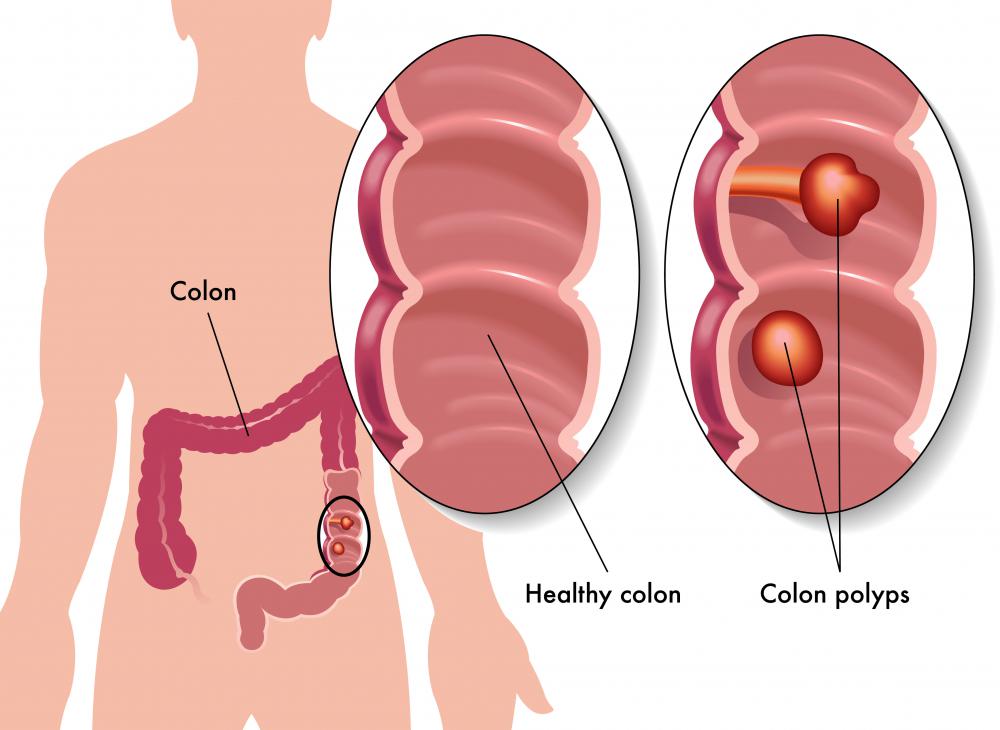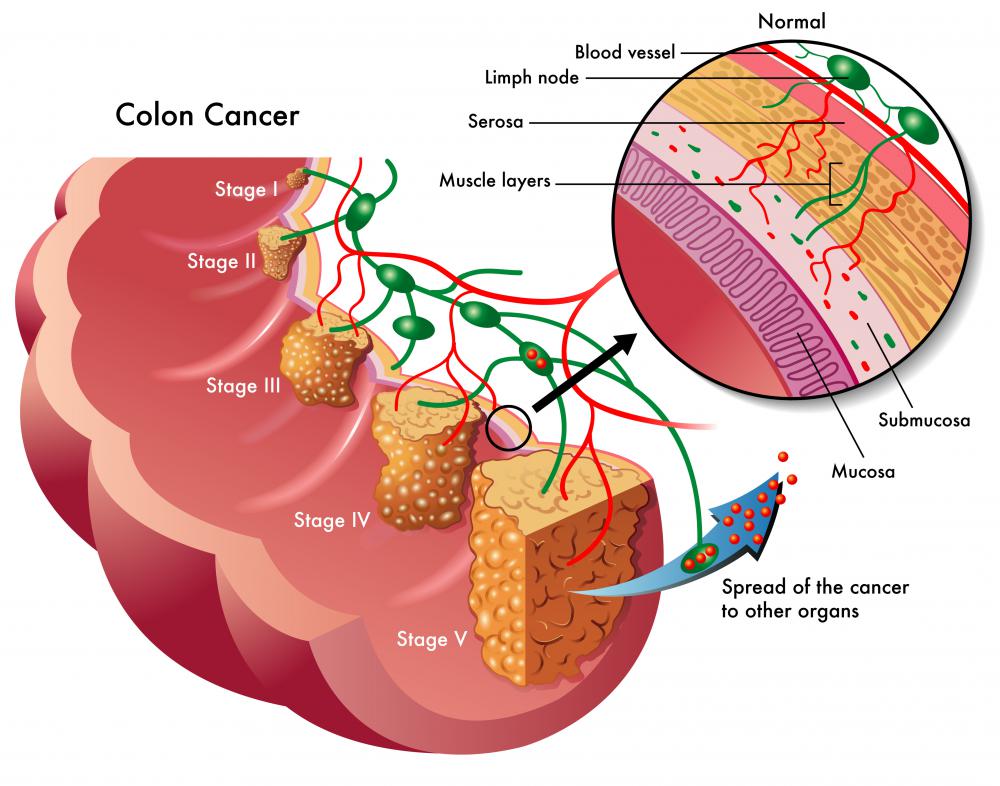At TheHealthBoard, we're committed to delivering accurate, trustworthy information. Our expert-authored content is rigorously fact-checked and sourced from credible authorities. Discover how we uphold the highest standards in providing you with reliable knowledge.
What are the Most Common Causes of Large Intestine Pain?
Large intestine pain is often caused by an intestinal obstruction, intestinal polyps, or Crohn’s disease. Each of these affect different parts of the large intestine, but the pain is often localized in the abdominal area. The different symptoms that accompany each of these diseases and conditions can help to distinguish which one an individual is suffering from. All of these causes require medical attention because of the risk of cancer and other serious illnesses. The treatments often range from medications to minor surgeries, and there are natural remedies to help alleviate symptoms.
Intestinal obstruction is a common cause of large intestine pain. Some of the symptoms include abdominal pain, constipation, and sometimes rectal bleeding. The three main causes of intestinal obstruction are colorectal cancer, volvulus, and diverticular disease. Volvulus is the twisting of the bowel, which forms a closed loop. Diverticular disease is when pouches, called diverticula, surrounding the large intestine constrict it and make the passage inside too narrow.

Another common cause of pain in the large intestine is intestinal polyps, which are outgrowths of the lining of the intestinal tract. It’s common in many individuals, especially those who are aged 50 and older. Individuals with intestinal polyps are at risk of developing colon cancer and must often complete laboratory tests to ensure that there is no cancer present. Polyps that are larger than 0.39 inches (1 cm) are a potential sign of cancer. Rectal bleeding is the often the most common sign that there are polyps in the large intestine.

Crohn’s disease is the inflammation of the bowels, which often results in ulcers. Individuals with Crohn’s disease often experience large intestine pain, and the disease is concentrated in the beginning of the large intestine. There is no known cause for it, but it’s often hereditary. Some of the symptoms include stomach pain, diarrhea, and rapid loss of weight. Individuals who experience a fever, a weak pulse, or severe stomach pain are often advised to seek immediate medical attention.

One treatment for large intestine pain is anti-inflammatory medication, which can alleviate the pain when the inflammation is reduced. Analgesics are medications that focus on pain relief. Some natural remedies include a warm bath and massages to overcome mild symptoms. A colonoscopy is often recommended in patients with polyps, and during that procedure the polyps can be removed from the large intestine with an electrocautery snare or biopsy forceps. Patients are often anesthetized during some procedures for removing polyps.
AS FEATURED ON:
AS FEATURED ON:


















Discussion Comments
Large intestine pain is very uncomfortable and can sometimes be something that is very simple or complex. If there is something in your family that is hereditary, this is sometimes the first thing that is considered.
My cousin was experiencing ongoing pain in the large intestine, and was diagnosed with Crohn's disease. His father also has the same thing, so it was one of the first things they began testing for. Many diseases are hereditary and this gives the doctors important information to know for your treatment.
I have always heard if you have any kind of abdominal pain that is abnormal for you or persistent that you should be seen by a doctor. I was experiencing right side pain and when I saw the doctor, there were many things they were trying to rule out before making a diagnosis.
Mine ended up being appendicitis, but my symptoms were not as typical as most for the type of pain I was having. They were also looking at gallbladder and ulcers as a possible reason for the pain I was having.
Post your comments